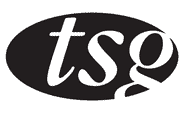|
Service Areas
|
Tax Tips
Barter transactions have become more common as exchanges, networks and word of mouth make more people aware of the concept. A barter transaction involves the trading of a good or services for another, usually (but not always) without the exchange of any amount of money. For example, "I will give you an hour of tax consulting if you fix my plugged toilet". Many people are under the misapprehension that there are no tax consequences when someone gives a product or service away in a barter transaction. Very often, there are significant tax consequences. In practice many barter transactions escape CRA scrutiny because there is no record of them. However, detection is not as hard as it used to be. For example, if you use a barter network, the CRA can easily find you from the company's records. Where goods or services are bartered, the value of those goods or services must be brought into the taxpayer's income if they are of a nature generally provided by the taxpayer in the course of earning income, related to a business carried on or the disposition of capital or eligible capital property. For example, the bartering of artwork may result in a capital gain even though no business is being carried on. That hour of tax consulting noted above would generate income for the tax advisor. The plumber would have income from the provision of one hour of plumbing services. Of course, any cost associated with providing the bartered good or service (e.g., any plumbing supplies the plumber pays for and uses on the toilet, or the tax advisor’s cost of driving to meet with the plumber to give him tax advice) is deductible in calculating net income. Whether the plumber can deduct the cost of the tax advice is a different question. If it is the type of advice that would be deductible (e.g., to contest a CRA assessment), then the plumber can deduct the cost, paid for with his plumbing services — so the tax result nets out to zero. Similarly, if the tax advisor is getting his office toilet fixed, so that the cost would be deductible, he can deduct the “cost” paid for by providing tax advice. However, if the tax advisor is getting his family toilet fixed, there is no offsetting deduction against the income the advisor is required to report. In addition to determining the income and expense classifications, the goods or services must be valued. In arm's length transactions, the amount to be included in income or as proceeds of disposition is the price that the taxpayer would normally have charged a stranger for the good or service. Where the value of the goods or services given up cannot readily be valued, the CRA will accept the value of the goods or services received as being the sale price, if the parties are dealing at arm's length. Non-arm's length transactions are subject to the same rules, but also certain restrictions in the Act. Networks have been created to allow subscribers to barter with each other. In many cases, barter credits are received to be used on purchases in the network. Where the use of these credits is limited, the actual proceeds you receive for tax purposes when you gave up goods or services (to get the credits) may be less than the real dollar value. In addition to income tax consequences there may also be GST/HST/QST implications to barter transactions. In general terms, if the service provided would have triggered sales tax, then it still triggers sales tax even though it is being paid for in something other than cash. We would be happy to discuss these rules with you. TAX TIP OF THE WEEK is provided as a free service to clients and friends of the Tax Specialist Group member firms. The Tax Specialist Group is a national affiliation of firms who specialize in providing tax consulting services to other professionals, businesses and high net worth individuals on Canadian and international tax matters and tax disputes. |


